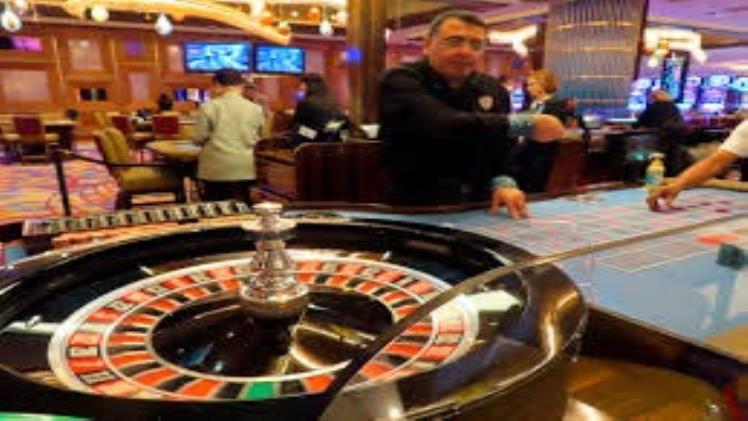
Casinos are more than just centers of gambling; they are cultural landmarks, economic drivers, and social environments that reflect the values and trends of their respective societies. From the iconic gaming halls of Las Vegas to the luxurious resorts of Macau, the global casino landscape showcases a blend of tradition, innovation, and entertainment. While the fundamental concept of wagering remains universal, the way it is practiced, perceived, and regulated varies widely from one region to another.
The Universal Appeal of Gambling
At its core, the casino experience taps into something deeply human: the thrill of uncertainty. The combination of risk and reward has attracted people for centuries, from ancient dice games to high-stakes poker tournaments. While some players approach gambling as a casual diversion, others pursue it with intense focus and strategic intent.
Regardless of motivation, the appeal lies in the unpredictability and the potential for reward. That chance, however small, of walking away with more than you started with is what fuels repeated play. In many cultures, gambling is also linked to superstition, fate, or luck—further adding to its emotional and symbolic weight.
Casinos Around the World
Different regions of the world have developed their own 78win traditions and approaches, reflecting local tastes and regulations.
- North America: Las Vegas and Atlantic City are well-known hubs in the United States, offering everything from traditional table games to massive entertainment complexes. Tribal casinos, operated by Native American groups, also play a significant role in the industry. Canada has its own network of casinos, many state-run, emphasizing social responsibility and community reinvestment.
- Europe: European casinos tend to be more formal, especially in places like Monaco or Austria. While games such as roulette and baccarat are popular, many European countries also host government-run betting shops or lotteries that serve as accessible alternatives to large-scale casinos.
- Asia: Macau, often referred to as the “gambling capital of the world,” has overtaken Las Vegas in terms of revenue. Its casinos cater to both high-rollers and mass-market players, with a focus on games like baccarat. In other parts of Asia, such as Singapore and the Philippines, integrated resorts combine gambling with tourism and entertainment to attract a global clientele.
- Oceania and Africa: In countries like Australia and South Africa, casinos are regulated and often part of larger tourism infrastructure. While not as prominent globally, these markets have grown steadily, especially in urban centers.
Despite regional differences, casinos worldwide are increasingly influenced by technology, customer experience design, and global consumer đăng nhập 78win.
The Entertainment Ecosystem
Modern casinos are no longer just about gambling. They’ve become entertainment hubs offering a wide range of experiences: live music, gourmet dining, nightclubs, spas, shopping, and theater. This evolution is particularly visible in destination cities, where casinos compete not just on games offered, but on the full package of hospitality and spectacle.
This broader approach to entertainment appeals to a diverse demographic. Visitors who may not gamble at all still frequent casino resorts for shows, food, or social events. This trend has helped normalize casinos as vacation spots and lifestyle venues rather than purely gambling institutions.
Technology and Innovation
Technology continues to reshape how casinos operate and interact with players. The rise of digital platforms has led to the growth of online gambling, allowing users to access games from their phones or computers. This convenience has expanded the casino audience significantly, reaching players who may never set foot inside a physical casino.
Other innovations include:
- Live dealer games: These simulate the feel of a real casino through video streaming.
- Mobile apps: Offering portable gaming experiences and promotional incentives.
- Blockchain and crypto casinos: Emerging trends in regions with limited financial infrastructure or where anonymity is desired.
- Artificial intelligence: Used for personalized marketing and player behavior analysis.
With these technologies come questions about regulation, fairness, and the risk of gambling addiction, especially as access becomes more seamless.
Social and Economic Impacts
Casinos can bring significant economic benefits to a region. They create jobs, support local suppliers, and generate tax revenue that can fund public programs. When linked to tourism, they can help diversify local economies and draw international visitors.
However, these benefits must be weighed against social costs. Gambling-related problems—such as addiction, financial hardship, and mental health issues—affect a small but notable percentage of players. For this reason, many jurisdictions require casinos to invest in responsible gambling programs, education, and treatment resources.
Community perception also plays a role. In some places, casinos are seen as glamorous and beneficial, while in others, they are viewed with skepticism due to their association with addiction or organized crime. These attitudes often shape local policy and regulation.
Evolving Attitudes Toward Gambling
Public attitudes toward gambling have shifted over the past few decades. Once considered taboo in many cultures, gambling is now more widely accepted, especially in regulated environments. Governments have increasingly recognized it as a potential source of revenue, and societal acceptance has grown alongside improved oversight and consumer protections.
Still, debates continue. Some argue that governments and casinos have a duty to protect vulnerable populations, while others believe in personal responsibility and freedom of choice. The challenge lies in finding a balance between accessibility and protection.
Conclusion
Casinos reflect the societies they inhabit—merging tradition, entertainment, risk, and regulation into complex cultural institutions. Whether viewed as economic assets, leisure destinations, or symbols of chance, casinos continue to evolve alongside global trends in technology, tourism, and public values.
Understanding casino culture means more than knowing how games are played—it involves recognizing how deeply these establishments influence, and are influenced by, the broader world. As the line between physical and digital gaming continues to blur, the future of casinos will likely be shaped by innovation, responsibility, and cultural context.